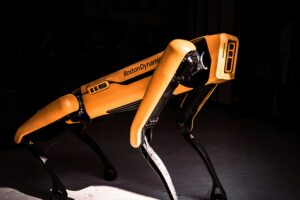Imagine a world where your morning coffee is brewed by a robot barista, your grocery shopping is done by a self-driving car, and your favorite restaurant is run by an artificial intelligence chef. This futuristic vision may not be as far off as you think, thanks to the rapid advancements in automation technology.
According to a recent study by McKinsey & Company, automation has the potential to revolutionize industries across the board, with an estimated 45% of current work activities being automated by technology. From manufacturing and transportation to healthcare and customer service, businesses are increasingly turning to automation to streamline processes, increase efficiency, and reduce costs.
But what does this mean for the human workforce? While some fear that automation will lead to widespread job loss, experts argue that it will simply shift the nature of work rather than eliminate it altogether. As Eric Schmidt, former chairman of Google, puts it, “AI and automation will create more jobs than it destroys, but we need to prepare our workforce for the changes ahead.”
In a world where machines can outperform humans in certain tasks, the key to staying relevant in the workforce lies in developing uniquely human skills such as creativity, empathy, and critical thinking. As technology continues to advance, it’s essential for businesses and individuals alike to adapt and embrace the opportunities that automation brings, paving the way for a more efficient and innovative future.



